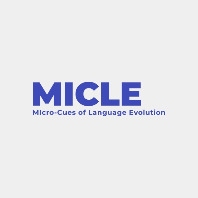FR | EN
Micro-cues of language evolution: A Multifactorial model of V2 loss in Central Romance (MICLE).
A collaborative project between the University of Caen (France) and Goethe University, Frankfurt am Main (Germany).
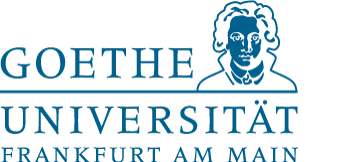
The MICLE project aims to :
- create a corpus of texts of the same types for the Norman French and the Venetian language, for the origins to the seventeenth century
- explain syntactic change in the sentence structure in two Romance language varieties for the period in question
- advance methodological practices and conceptual perspectives in the field by creating a model linking grammatical change to the acquisition of language.
In order to achieve MICLE’s main goal of elaborating and testing a multifactorial model of word order evolution, we are creating a bilingual corpus in two Romance language varieties with similar trajectories of development, the Venetian and the French of Normandy.
Our corpus aims, as far as possible, to give access to the everyday language from the earliest vernacular witnesses to the seventeenth century. The texts of the corpus belong to the same non-literary textual types, which will allow us to avoid distortions and biases that collecting a diverse range of genres would have introduced.
Since they contain evidence of spoken language and traces of dialogue, for the French part of the corpus, we have included trial accounts, depositions and so-called styles de procès. In particular, the French corpus showcases witch trials in Normandy and the Channel islands, from Jeanne d’Arc to Madeleine Bavent.
Since April 2023, you can consult the first version of the French corpus, lemmatised and part-of-speech annotated, via the CRISCO lab’s TXM portal (select MICLE-PREVIEW from the left-hand side menu).
Considering the specificity and availability of extant witnesses, the Venetian part of the corpus will include not only trial accounts but also statutes and other legal texts that illuminate the system of government in different regions under Venetian control. The full annotated Venetian corpus will be made available at the end of the project. Wherever possible, annotated XML/TEI files of the texts of the corpus as well as the software developed and used for the purposes of annotation will also be made available in spring 2024.
Primary investigators
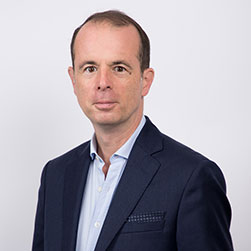
Pierre LARRIVÉE | CRISCO · université de Caen Normandie · France
Principle Investigator of the French team of the project, in charge of the overall conceptual and operational coherence of the project, in close association with the German PI.
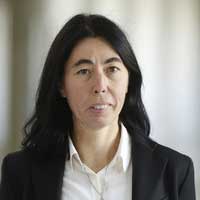
Cécilia POLETTO | Institut für Romanische Sprachen und Literaturen · Goethe Universität · Frankfurt, Germany
Primary investigator (German team). Full professor at Goethe University in Frankfurt am Main.
Post-doctoral researchers
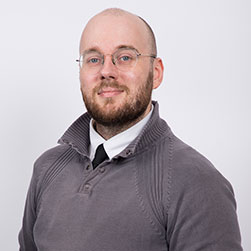
Mathieu GOUX | CRISCO · université de Caen Normandie · France
Post-doctoral fellow of the project (French team), in charge of the digitization, transcription and TEI-XML structuring of the texts of the corpus, as well as their annotation and linguistic analysis.
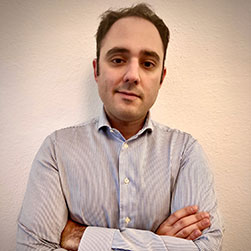
Francesco PINZIN | Institut für Romanische Sprachen und Literaturen · Goethe Universität · Frankfurt, Germany
Post-doctoral fellow of the project (German team), in charge of selection, digitization, transcription and TEI-XML structuring of the texts of the corpus, as well as their annotation and linguistic analysis.
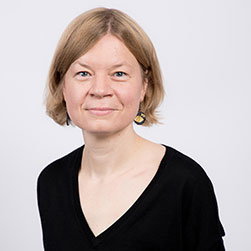
Natalia ROMANOVA | CRISCO · université de Caen Normandie · France
As project manager, I work with the PIs and post-doctoral follows on all aspects of the MICLE corpus creation. I am involved in identifying and digitally editing unpublished manuscripts that will be made accessible via the project website.
Research Assistants
- Enrico CASTRO
- Emmanuele ROMANINI
Student Interns
2022-2023
- Manon LAVERGNE | Université de Caen
- Leah PAVCIC | Goethe Universität, Frankfurt
- Francesca SANTANGELO | Università Ca’ Foscari Venezia
2021-2022
- Agathe AUBERT
- Lucy MARIE-LEBLANC
- Marie PICART
- Valentin SIMENEL | Université de Caen
Goux, M. & Pinzin F. 2023. Challenges of a Multilingual Corpus (Old French/Old Venetian): The Example of the MICLE project. Venise et la France. Similitudes, spécificités, interrelations. Castro E., Della Fontana A. and Pezzini E. Franco Cesati (eds) (forthcoming)
Larrivée, P. 2021. An Information Structure scenario for V2 loss in Medieval French. Diachronica 38.2: 189-209
Poletto, C. 2019. More than one way out: on the factors influencing the loss ov V to C movement. Linguistic Variation 19.1 (2019): 47-81
MICLE project team regularly give presentations and training sessions (online and in person) to present the corpus, its annotation programme and annotation workflow to colleagues and students at different universities in France, Germany and abroad. MICLE researchers also share their findings at international and international conferences and via invited lectures.
Call for papers, “Tracing the Curve of Evolution: Syntactic Change Through Text Types” · 28-30 March 2024
Upcoming academic presentations
On hold
Past academic presentations
Cecilia Poletto (et al) “Learning how to count: a treebank analysis of V2 word order in two Medieval Romance languages through time ” · 4-8 September 2023
ICHL26: 26th International Conference on Historical Linguistics, University of Heidelberg
Cecilia Poletto (et al) “Are French and Venetian V2 languages? A diachronic treebank analysis” (conference presentation)” · 26-30 June 2023
LSRL53: 53rd Linguistic Symposium on Romance Languages, Paris
Pierre Larrivée and Mathieu Goux “Antéposition stylistique de l’infinitif et du participe dans l’histoire du français” (conference presentation) · 24 March 2023
Colloque de la Société Internationale de Diachronie du Français (SIDF), Ludwig-Maximilians-Universität, Munich
More information
Francesco Pinzin and Cecilia Poletto “Economy and verb movement: the diachronic perspective” (conference paper) · 10 March 2023
DGfS 2023, Cologne
Tommaso Balsemin, Francesco Pinzin and Cecilia Poletto “Universal 20 restriction reloaded: the view from Old Italo-Romance” (poster presentation) · 1 December 2022
Going Romance 2022, Universitat Autònoma, Barcelona
Cecilia Poletto “On Deriving the Consistency Principle in Old Italo-Romance” (keynote lecture) · 17 November 2022
“Mapping Syntax” Workshop, University of Oxford
Mathieu Goux and Pierre Larrivée “Antéposition stylistique de l’infinitif et du participe dans l’histoire du français” (conference paper) · 13 October 2022
“La constitution de corpus en diachronie longue : méthodologies, objectifs et exploitations linguistiques et stylistiques” Conference, University of Grenoble
More information
Mathieu Goux “Enjeux des corpus multilingues en diachronie longue : l’exemple du projet MICLE” (conference paper) · 13 October 2022
“La constitution de corpus en diachronie longue : méthodologies, objectifs et exploitations linguistiques et stylistiques” Conference, University of Grenoble
More information
Pierre Larrivée “Les causes du changement syntaxique : Un modèle multifactoriel” (lecture) · 29 September 2022
Séminaire BCL, Université Côte d’Azur, Nice
Cecilia Poletto and Francesco Pinzin “What’s left of the V2 high tide: Infinitival Anteposition” (conference paper) · 14 September 2022
16th Cambridge Italian Dialect Syntax-Morphology Meeting, University of Naples
Pierre Larrivée and Cecilia Poletto (organisers), Hiwa Asadpour, Alessandra Giorgi, Onkar Singh, Sam Wolfe (speakers) “Multifactorial Approaches to Word Order Change” (conference workshop) · 24-25 August 2022
Societas Linguistica Europaea Conference, University of Bucharest
More information
Pierre Larrivée “Micro-cues and language change: There’s a quantitative correlation between V2 and particle si in (non-literary) Medieval French” (conference paper) · 4 August 2022
25e International Conference on Historical Linguistics, University of Oxford
Pierre Larrivée and Cecilia Poletto “Ordre des mots, changement syntaxique et micro-indicateurs dans deux langues romanes” (conference paper) · 18 June 2022
Conference of the “Société de Linguistique de Paris”, Paris
Mathieu Goux and Francesco Pinzin “MICLE Project: theoretical goals and methodological considerations” (conference paper) · 29 March 2022
Conference “Venise et la France: Similitudes, Spécificités, Interrelations”, University of Lausanne and online
Cecilia Poletto and Francesco Pinzin “Infinitival Modal Inversion: A Preliminary Study of Three Old Venetian Texts)” (conference paper) · 24 February 2022
“GRaVO” conference, University of Padua and online
Mathieu Goux “Text Transcription and Artificial Intelligence” (lecture) · 12 December 2021
Lecture series “Seminari di Linguistica”, University of Padua and online
Pierre Larrivée “Textes juridiques et changement linguistique” (lecture) · 3 December 2021
Seminar series “Tournant de jurilinguistique”, University of Nantes
Pierre Larrivée “Triangulations” (workshop presentation) · 16 September 2021
Workshop “Pour une histoire de la langue ‘par en bas’: textes privés et variation des langues dans le passé”, Paris 3 University


